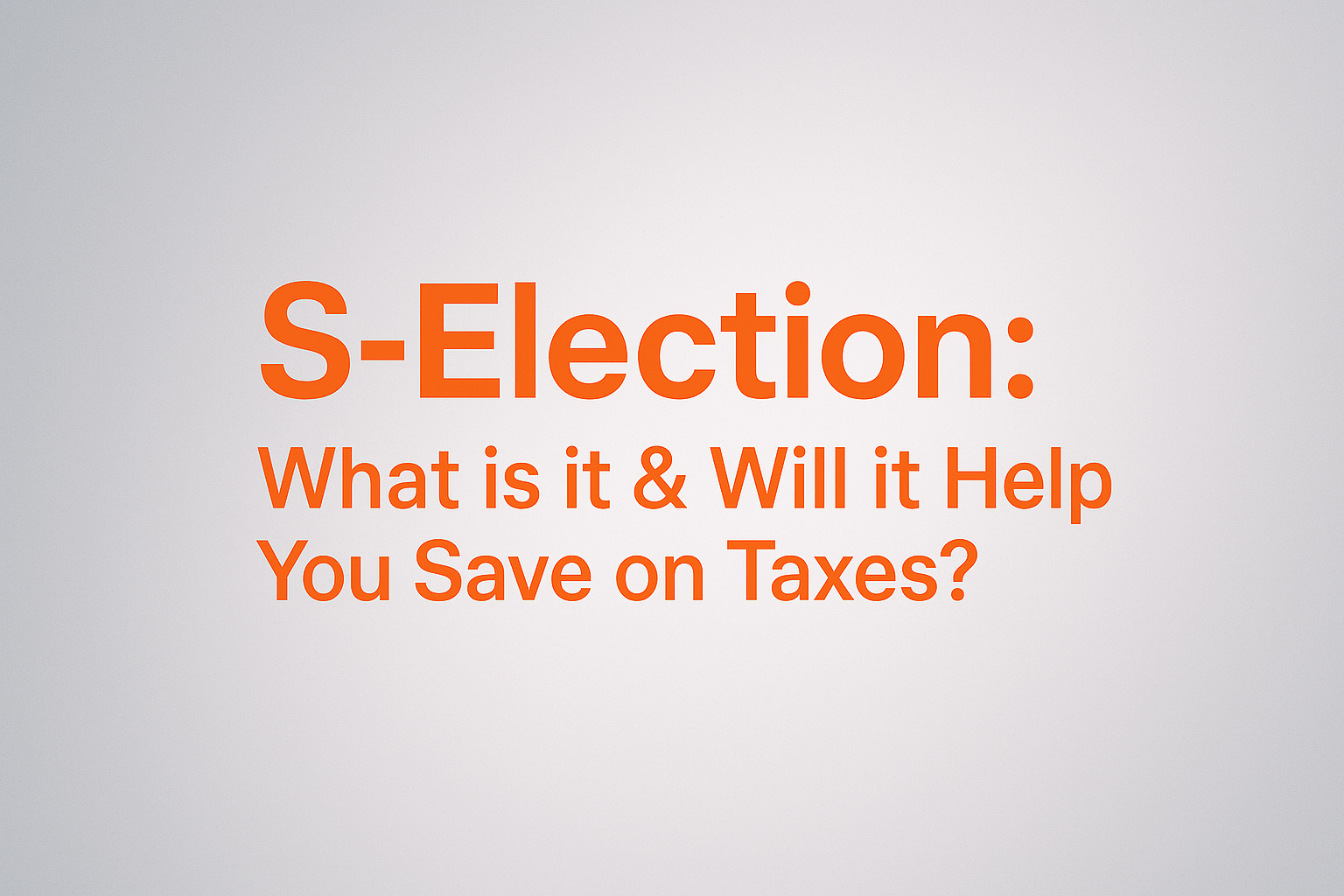The s-election gets a lot of buzz online, but will it save you taxes? So, when you start a business by yourself (or a single-member LLC), by default the IRS taxes you as a sole proprietor. When you start a business with someone else by default the IRS taxes you as a partnership. In either case, this means you’ll pay both income tax (10% – 37%) and self-employment tax (15.3%) on all of your profits. But with an S-Election, you don’t have to pay self-employment tax on your profits!
How the S-Election works:
• As the name implies, the S-election is an election you make with the IRS to change how you are taxed.
• Once made, your business becomes a “pass-through entity”
• You become an employee of your business
• You pay yourself a “reasonable salary” & only have to pay self-employment taxes on your salary
• The remaining profits – only income tax applies!
A quick example:
Meet Sarah, a consultant who made $150,000 in business profit in 2024 (Note: To keep things simple, I’m not going into the math behind things like the standard deduction, QBI, etc.)
As a Sole Proprietor:
• Income tax on $150,000: $17,000
• Self-employment tax on $150,000: $21,200
• Total tax: $38,200
With an S-Election (assuming $75,000 “reasonable salary”):
• Income tax on $150,000 ($75K of business profit + $75K salary): $21,900
• Self-employment tax ONLY on $75,000 salary: $11,500
• Total tax: $33,400
That’s $4,800 staying in Sarah’s pocket every single year!
Over 10 years? That’s $48,000 she could invest back into her business, put toward a dream home, or save for retirement.
Is the S-Corp right for everyone? Absolutely not. There are additional considerations in terms of type of business you’re in, how profitable your business is, what a “reasonable salary” is for your situation, compliance costs, how it impacts your QBI deduction, what state you live in, and more.
If you’re curious if an S-Election could work for you, use the link above to schedule a call with me!





